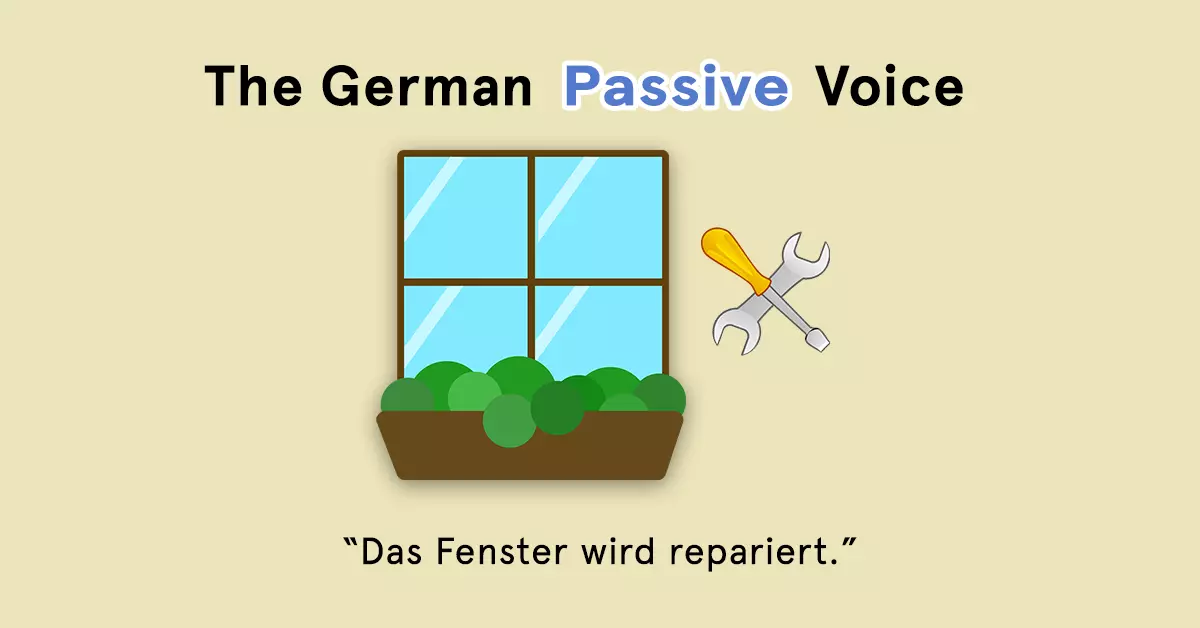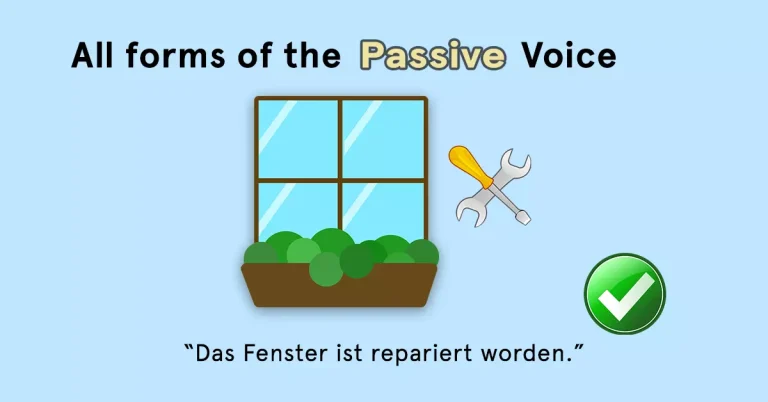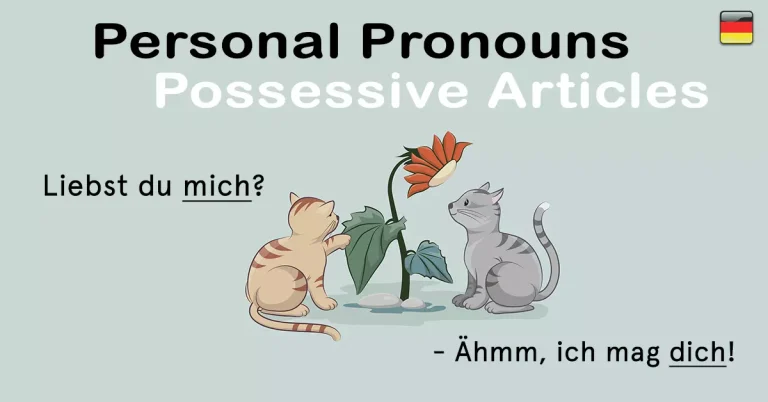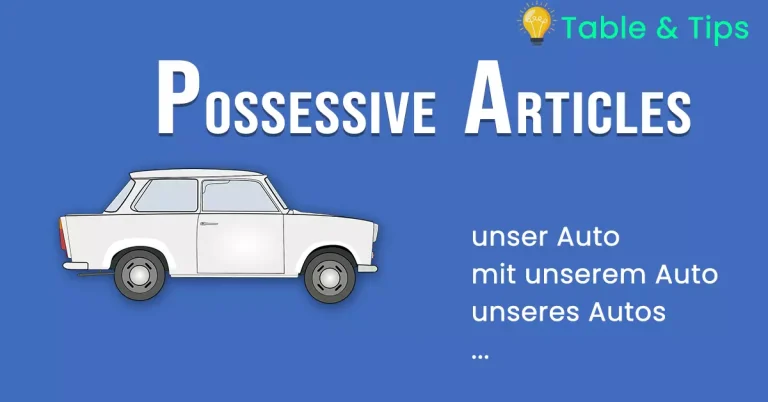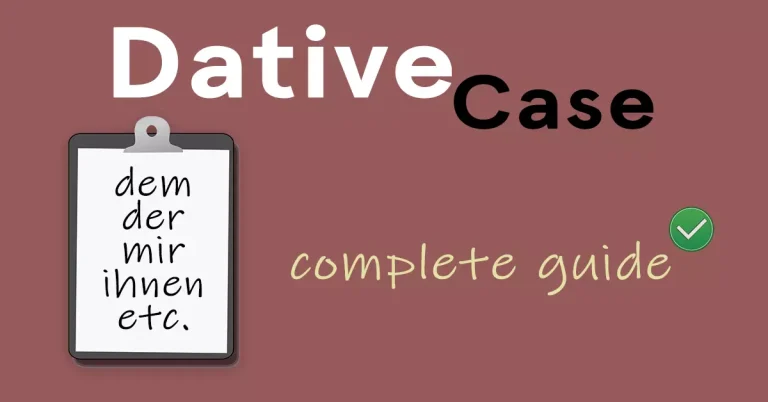This article teaches you all the basics on the passive voice in German. We’ll talk about the formation, the meaning and its usage with lots of easy-to-understand examples.
I hope you guys are really ACTIVE learning German, but let’s be PASSIVE today :), or rather let’s take a look at the passive voice in German, what is it, how it works and when to use it. This guide will give you a basic understanding if you have no or hardly any previous knowledge on the topic. There is a part 2 as well, where I show you all important tenses and forms of the passive: Passive Voice In German (Part 2) – All tenses
What is the passive voice?
The passive voice is a fundamental topic in German grammar and it is usually taught at the A2/B1 level. Let’s take a look at two English sentences to get a first idea in case you’ve never heard about the passive voice even in English.
Active: The sudent writes the text.
Passive: The text is written (by the student).
Why and when to use it
Its main function is to shift the focus away from the the person or thing that is performing the action of the verb (this is called the “agent” in grammar). And it moves the focus to the action. So, rather the focusing on what someone is doing or what they have done etc., the passive voice puts emphasis what is being done or what has been done etc.
From a stylistic point of view, the passive sentence feels less direct and more objective, which is why it is used a lot in (news) reports and in more formal speech. Another usage case is when you don’t know who the agent is (My bike was/got stolen. I don’t know who did it…).
This article will explain how to form and use the passive voice in German. We will only discuss the present tense here. Check out this article for all other tenses and forms.
Passive voice: German example
Let’s dive right in and take a look at an actual German example.
Active: Der Schüler schreibt den Text.
Passive: Der Text wird (vom Schüler) geschrieben.
German uses a similar structure for the passive to its English equivalent, but with “werden” as the auxiliary verb. You then combine the correct form “werden” with the past participle form (Partizip 2) of the verb.
The regular forms always end with a “t” and (usually) start with “ge”. So the form “gemacht” is the (regular) Partizip 2 form of the verb “machen”. However, just like in English, many verbs have irregular forms, just like in our first example, where we used “geschrieben” instead of “*geschreibt”.
► Take away: The Formula for the passive voice in German is werden + Partizip 2.
The auxiliary “werden”

3 important things to note
Active: Der Schüler schreibt den Text.
Passive: Der Text wird (vom Schüler) geschrieben.
Accusative ► Nominative: If we compare the active and the passive sentence form a syntactical point of view, we can see that the direct object (Akkusativ) form “den Text” becomes the subject in our newly formed passive voice sentence “Der Text…”. This is important as you can usually only (of course there are some exceptions) form a passive sentence with those verbs that take a direct accusative object (i.e. transitive verbs).
Examples of such verbs include: einen Text schreiben, jemanden lieben, jemanden anrufen (to write, love, call).
Who: Another important aspect in passive sentences concerns the agent (Who was it done by?). As you can see in our example, the agent doesn’t have to be mentioned, unless it adds important information. In fact, in many passive voice sentences it is even unknown who the agent is (The bike was stolen…. but I have no idea who did it.)
The correct preposition to indicate the agent in passive sentences is “von” (always +dative) if you do know and want to give this piece of information.
Word order: The third and last important piece to the puzzle is the position of the words. The auxiliary “werden” is the finite (=conjugated) verb in our examples, so it has to take the second position in main clauses and the final position in subclauses (Nebensätze). The Partizip 2 form will always be at the end of the sentence in main clauses and just before the form of “werden” in subclauses (i.e. second last position.)
More Examples
Active: Der Mann repariert das Fenster.
The man repairs (or: is repairing) the window.
Passive: Das Fenster wird (vom Mann) repariert.
The window is repaired (or: is being repaired) (by the man).
Active: Die Freunde rufen mich oft an.
The friends often call me.
Passive: Ich werde oft (von den Freunden) angerufen.
I often get called (by the friends).
Summary
- You can use the passive with transitive (accusative) verbs like schreiben, reparieren and anrufen.
- The element that would be the object in an active sentence will be the subject (nominative case) in your passive sentence (e.g. mich → ich; den Text → der Text).
- Use a form of “werden” as your main (finite, conjugated) verb together with a past participle form, which is (at least in main clauses) always at the end of the sentence.
- It’s quite common not to indicate agent, but if you’d like to do so, you can by using the preposition “von” (+dative).
Exercises
Test your knowledge with exercises on this topic!

For DMM members only. You can sign up for free or make a voluntary monthly donation.
